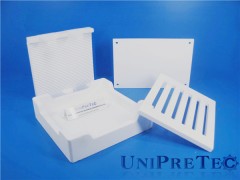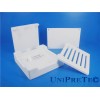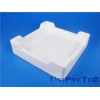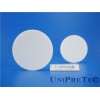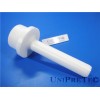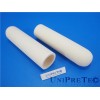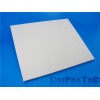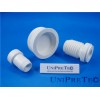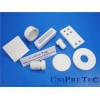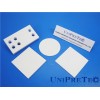UNIPRETEC offers a full range of solutions for supporting parts during sintering in reducing or oxidizing atmospheres up to 1700ºC. UNIPRETEC has the industry's broadest range of manufacturing methods – including vacuum forming, casting, pressing and CNC machining – that allow us to customize setters to best suit customer requirements in prototype or production volumes. Mullite, alumina and alumina-zirconia compositions are available for applications in sintering of technical ceramic, electronic ceramic, and powder metal parts.
1. Technical Ceramics
For firing of heavy loads pressed mullite and mullite-alumina plates have excellent resistance to sagging. Engineered compositions make smooth and flat surfaces possible while maintaining excellent thermal shock properties.
For small parts firing, UNIPRETEC offers machinable, low mass alumina fiber based compositions that eliminate the need for costly hard tooling. This allows manufacturers to customize setter configuration without costly mold charges. Low mass setters exhibit excellent thermal shock properties and by reducing the mass of the overall furnace load. This enables rapid furnace turnaround for firing parts that can withstand rapid cooling rates.
2. Electronic Ceramics
Pressed alumina and mullite setters are available as flat plates or with posts or rails for stacking for the firing of capacitors, resistors, and other electronic ceramics.
Alumina fiber machinable grades are available to produce custom configurations in low or high volume.
Zirconia coatings are available for sintering compositions that may react with alumina and/or mullite setters. Several coating methods are possible depending on the setter quantity requirement and the degree of possible reaction with parts being sintered.
3. Powder metal and metal Injection Molding
High purity alumina compositions with excellent thermal shock and minimal silica impurities are available that are suitable for use in dry hydrogen or vacuum at temperatures up to 1650º C.
Intricate shapes can be readily CNC machined to provide the support required during sintering for fragile MIM parts after binder burnout.
Pressed compositions are available for heavier loads or for greater durability.

